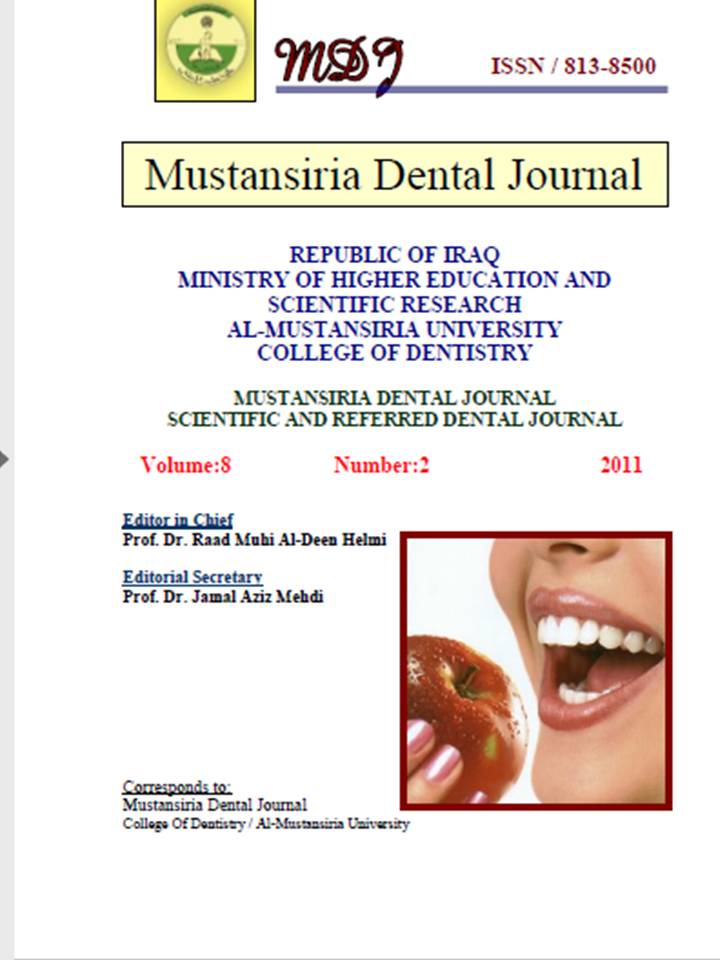An evaluation of the effect of different solutions on the microhardness of aesthetic restoration
DOI:
https://doi.org/10.32828/mdj.v8i2.313Keywords:
Key words: Brinell hardness number, food simulating solution, storage solutionsAbstract
Dietary awareness is an important issue in modern society. The consumption of
carbonated drinks is popular with the youth of today and the habit is carried over into
adulthood. One of the most important properties that determine the durability of
dental materials in the oral cavity is their resistance to dissolution or disintegration
and the longevity of dental restorations depends on the durability of the material and
its properties, such as wear resistance, durability of the interface between tooth and
restoration and the level of tooth destruction.
The aim of this study was to measure surface hardness of composite after storage
in dry condition and after immersion in saliva and solutions that represent the popular
diet.
Fifty disk shaped specimens (5×2mm) were prepared from Z100 universal
composite using polytetraflouroethylen mold. The specimens were divided into 5
groups (n=10) and stored for 7 days at 37 Cْ in different types of storage conditions
(dry condition, artificial saliva, coca cola, heptane and citric acid). After storage,
Brinell Hardness Numbers were calculated. The data were analyzed with one – way
analysis of variance (ANOVA) and LSD test.
There was a highly significant difference when comparing the storage agents.
Coca cola and citric acid solutions produced the highest reduction in microhardness of
composite. It was followed by heptanes, artificial saliva. The storage of specimens in
dry container produced the highest Brinell Hardness Numbers.
Microhardness of composites stored in dry condition was the highest value,
followed by artificial saliva, heptane solution, cola soft drink and citric acid . Acid
solutions have the potential to erode composite resin material and this reduction was
highly significant, which means that people who consume acidic foods and drinks
excessively should be aware of their esthetic restorations.










